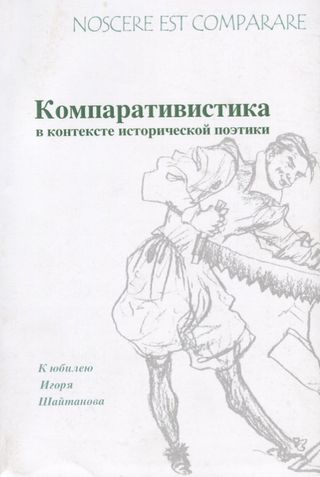?
Французская прециозность середины XVII века: «забавная» vs «барочная»?
С. 110–125.
Language:
Russian
Keywords: французская литература XVII века
In book

М.: Изд-во РГГУ, 2017.
Golubkov A., В кн.: Искусство медленного чтения: История, традиция, современность: коллективная монография. М.: Издательство «Канон+» РООИ «Реабилитация», 2020. С. 148–165.
The Chapter is devoted to understanding the concept of "reading" in the French culture of the XVII century, special attention is paid to women's salons ...
Added: October 21, 2020
Golubkov A., В кн.: Франция и Россия: вокруг Блеза Паскаля. СПб.: Алетейя, 2020. С. 85–94.
The article is devoted to the phenomenon of incompleteness of the book "Thoughts" by B. Pascal ...
Added: October 21, 2020
Коцюбинский С. Д., Печатная мастерская «Радонеж», 2018.
В настоящее издание включены литературоведческие работы Сергея Дмитриевича Коцюбинского (1909–1943?), посвященные французской литературе XVII века. Среди них предисловия к пьесам Мольера, статьи о Лабрюйере и Паскале, главы о прозе французского классицизма из академической «Истории французской литературы», написанные в конце 30-х – начале 40-х годов ХХ века. ...
Added: October 25, 2018
Golubkov A., Известия РАН. Серия литературы и языка 2017 Т. 76 № 3 С. 60–68
The article traces the sources of Molière’s play “The Affected Ladies” (“Les Précieuses ridicules”), which mocks behavior and talk characteristic of ‘précieuses’ – the refined ladies who frequented the exquisite French salons of the mid 17th century. The comedy turns out to be a dramatic cento, i.e. a text composed of stereotypic theatrical situations and ...
Added: October 14, 2019
Golubkov A., Studia Litterarum 2018 Т. 3 № 4 С. 106–115
The article analyzes the reception of the “Secret History” pamphlet written by Procopius of Caesarea, a 7th century AD Byzantine historian, author of well-known panegyric texts about the Basileus Justinian. The manuscript of this pamphlet was found by an hellenophile Niccolo Alemanni and published in 1623 in Lyon as “Anekdota” (this literary work was first ...
Added: October 14, 2019
Golubkov A., Новый филологический вестник 2019 № 49 С. 269–278
The article concerns the analysis of “Oedipus”, a tragedy by P. Corneille, staged in Paris in January 1659. The play, created on the advice of Superintendent N. Fouquet, has substantial plot differences as compared with classical Oedipus story schemes, dating back to Sophocles and Seneca. Corneille has considerably shortened the tale about the life of ...
Added: October 14, 2019
Golubkov A., М.: ИМЛИ РАН, 2017.
Монография посвящена анализу французской прециозности – важного феномена галантной литературной традиции, получившего распространение в парижских светских салонах середины XVII в. Анализируются истоки прециозности и её развитие как определённого направления, которое в современной литературоведческой традиции оказывается соотнесённым с эстетической практикой барокко. В фокусе исследования также активная полемика вокруг этого явления во французской интеллектуальной культуре 1650–1670-х гг., ...
Added: December 21, 2018